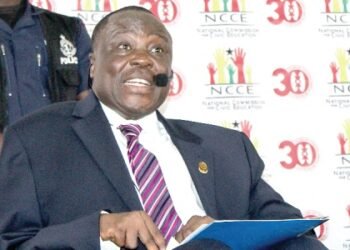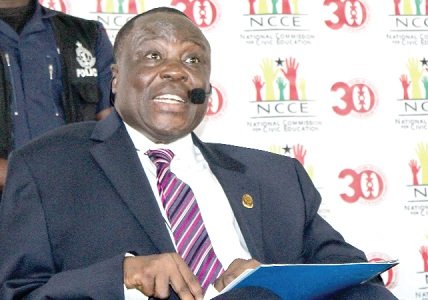The Minister for Communications and Digitalisation, Ursula Owusu-Ekuful has called for the issuance of licenses to regulate and legally recognize cybersecurity service providers and experts in the country.
Speaking at a forum on Cybersecurity Act 2020, Mrs Owusu-Ekuful revealed that for cybersecurity service providers to gain recognition, the institution or individual must apply for a practicing license and be granted the license provided by the Cyber Security Authority on meeting the necessary requirements.
The engagement forms part of this year’s National Cybersecurity Awareness Month, on the theme: ‘Ghana’s Cybersecurity Act, 2020; Its Implications and the Role of Stakeholders’.
Among other reasons, Mrs Owusu-Ekuful indicated that the licensing of these persons will ensure sanity within the industry in terms of capabilities and acceptable ways of conducting such sensitive services in Ghana. She described the move as critical to ensuring that the industry is rid of unscrupulous personalities.
Following the lack of skilled job opportunities within the cybersecurity space for many to take advantage of, the communication minister expressed concern that this may serve as an opportunity for unscrupulous persons to take advantage and as such expects the development of standards and certification to address this challenge.
“There are many indications today that demand for cybersecurity workers will continue to be high. All organisations need to understand is the threat on environment and the risks they face, address their cybersecurity problems, and hire the most appropriate people to do that work”.
Mrs Ursula Owusu-Ekuful
National Cybersecurity Authority to research on skills gap
Buttressing the need for recognized cybersecurity experts in the country, Mrs Owusu-Ekuful stated that the New York Times had reported that an estimated 3.5 million cybersecurity jobs would be available but unfilled by 2021. Thus, there is the need to have adequate numbers of well trained and competent professionals in the country.
Following this, she urged the National Cybersecurity Authority to investigate the skills gap within the industry in Ghana for the next five years.
“In view of the anticipated need for cybersecurity workforce in the country, I have tasked the Cybersecurity Authority to engage with you – the private sector actors to conduct research to establish Ghana’s cybersecurity workforce needs for the next five years. Findings from such research will support government policy on cybersecurity skills development and capacity building efforts in this critical sector of our digital economy”.
Mrs Ursula Owusu-Ekuful
On his part, Dr Albert Antwi-Boasiako, Acting Director-General of the Cyber Security Authority, revealed that some areas from which the Act drew strength from included provisions on the protection of critical information infrastructure, incident reporting and response.
He expressed the significant role the industry plays as critical component of Ghana’s cybersecurity architecture and the need for regulations on lawful access to data for law enforcement purposes.
Cybersecurity regulations, Dr Antwi-Boasiako explained, proves beneficial to Ghana’s critical systems and digital infrastructure. As such, provisions in the Act would support a systematic development of the sub-sector of the emerging digital economy.
Dr. Albert Antwi Boasiako reinforced the need for cybersecurity professionals to be trained and certified. According to him, this will also protect them and the nation as a whole.
Read Also: Africa and Turkey Sign Agreement for Economic and Business Forum






















